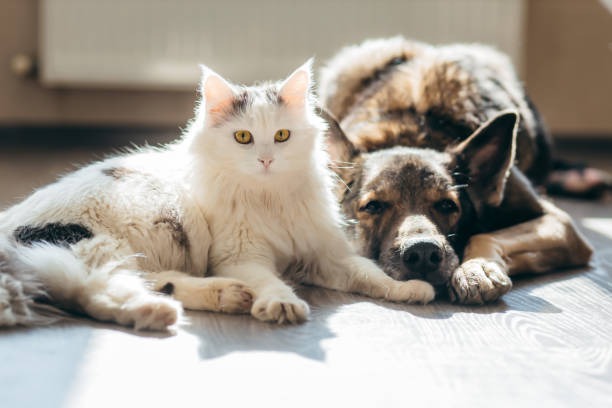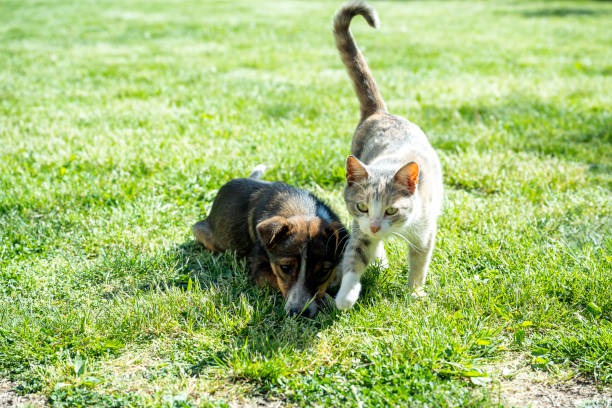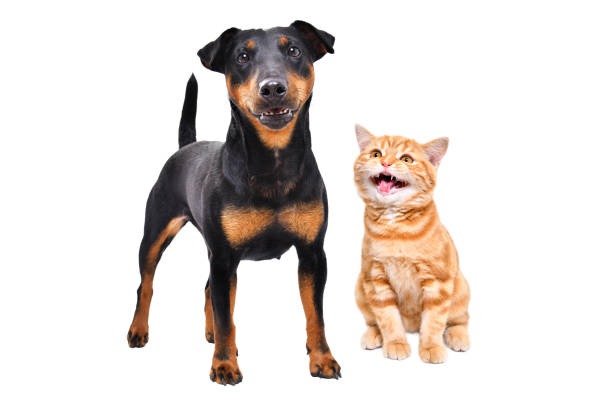Regarding our furry, feathered, or scaled friends, their health and safety are always a top priority for pet owners. However, situations can arise suddenly that may require immediate medical attention. Recognizing when such emergencies warrant a visit to an animal hospital is crucial. In this guide, we’ll explore the scenarios that necessitate emergency services, detail the process of veterinary diagnostics, and touch upon specialized care areas like kitten veterinarians in specific locales.
Identifying Pet Emergencies
First and foremost, understanding what constitutes a pet emergency is vital. Here are everyday situations where you should consider visiting an emergency pet hospital:
-
Severe Bleeding: If your pet is experiencing uncontrollable bleeding, it’s a sign that they need professional help immediately.
-
Breathing Difficulties: Any noticeable struggle in breathing is a critical sign that something is wrong.
-
Trauma: This includes being hit by a car, a fall from a significant height, or any other serious injury.
-
Poisoning: Suspected ingestion of toxic substances warrants immediate medical attention.
-
Seizures: If your pet experiences exceedingly prolonged or recurring seizures, it’s time to seek emergency care.
-
Extreme Pain: Vocalizations of pain, difficulty moving, or severe limping are clear indicators.
-
Vomiting or Diarrhea: Persistent vomiting or diarrhea, especially with blood, can lead to dehydration and should be treated promptly.
Understanding these signs and acting swiftly can be life-saving for your pet.
What to Do in a Pet Emergency
In the event of a pet emergency, staying calm is paramount. Here’s a quick guide to what you should do:
-
Assess the Situation: Quickly but calmly evaluate your pet’s condition. Try to determine the severity of the situation without putting yourself or the pet in further danger.
-
Contact Your Vet: Call your veterinarian or an emergency pet hospital if you believe it’s an emergency. They can provide immediate advice over the phone and prepare for your arrival.
-
Transport Safely: Ensure the safe transport of your pet to the hospital. Use a carrier or gently wrap them in a blanket to avoid further injury or stress.
Veterinary Diagnostics
Once at the hospital, veterinary professionals will likely perform a range of diagnostics to assess your pet’s condition accurately. This could include blood tests, X-rays, ultrasounds, and more, often conducted in a veterinary laboratory. These diagnostics are crucial for providing timely and accurate treatments. Reliable diagnostics can be the difference between a full recovery and long-term health issues, highlighting the importance of well-equipped veterinary facilities.
After Emergency Care
Your pet may require further treatment or continuous care at home following an emergency visit. Here’s what to expect:
-
Follow-Up Visits: Ensure you adhere to any scheduled follow-ups. They allow the veterinarian to monitor recovery and make any necessary treatment adjustments.
-
Medication Management: If your pet has been prescribed medication, administering it as directed is essential for recovery.
-
Observation: Keep a close eye on your pet for any new or worsening symptoms, and report these to your veterinarian immediately.
-
Rest and Recovery: Provide a quiet, comfortable space for your pet to rest. Limit their physical activity as advised by the veterinarian.
With their curious nature and delicate health, kittens often require specialized care. Finding a kitten veterinarian in New York or any urban area can offer tailored health strategies for the unique needs of young felines. Such specialists provide emergency care and guide you in preventive measures, ensuring your kitten grows into a healthy, happy cat.
Choosing the Right Emergency Pet Hospital
Not all animal hospitals are created equal, especially in emergency care. Here are factors to consider:
-
Availability: Ideally, select a hospital that offers 24/7 emergency services.
-
Facilities: Check if the hospital has the necessary diagnostic tools and treatment facilities.
-
Specializations: For sure, pets, like exotic animals or specific breeds, ensure the hospital has the expertise to provide appropriate care.
-
Reviews: Look for testimonials from other pet owners about their emergency care experiences at the hospital.
The Cost of Emergency Veterinary Care
-
Immediate Attention Required: Urgency often means no time for usual appointment waits, contributing to higher costs.
-
Specialized Skills and Staff: Emergency vets often possess specialized skills for urgent care needs, which commands higher salaries. Additional staff might be needed to handle emergencies, further escalating costs.
-
Advanced Diagnostics and Equipment: Emergency cases may require immediate and advanced diagnostic tests that are more expensive. Using cutting-edge medical equipment for diagnosis and treatment can drive up costs.
-
Extended Hospitalization: Pets with severe conditions may need prolonged hospital stays, increasing expenses. Intensive care units for pets demand high maintenance and staffing, contributing to the bill.
-
Medication and Treatment: Emergency conditions may require specialized medications or surgical interventions. The cost of medications, anesthesia, and surgical supplies can be substantial.
Strategies You Can Use to Lessen the Cost:
-
Pet Insurance: Investing in a good pet insurance plan can mitigate the financial impact of emergencies.
-
Savings Fund: Spending money regularly in a pet emergency fund can provide a safety net.
-
Regular Veterinary Care: Preventive care can identify potential health issues before they become emergencies. Routine check-ups and vaccinations can prevent diseases that lead to expensive emergency visits.
Final Thoughts
Managing the stress of a pet emergency can be challenging, but understanding when such services are needed, what to expect, and how to provide aftercare can make all the difference. Always remember the importance of swift action and the value of preparedness. With the right approach, you can ensure the best care for your beloved pet in their time of need, bolstering their chances for a speedy and complete recovery.






